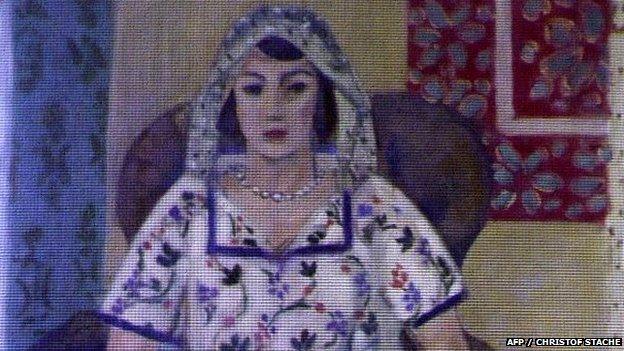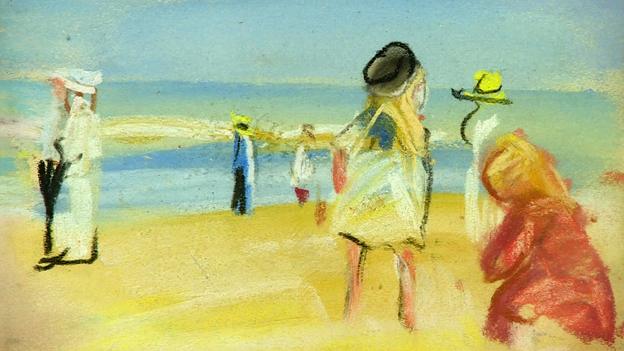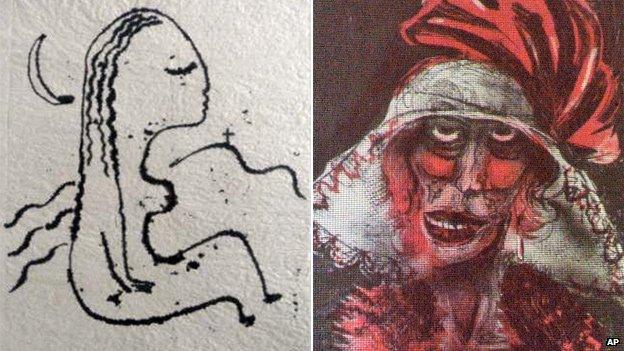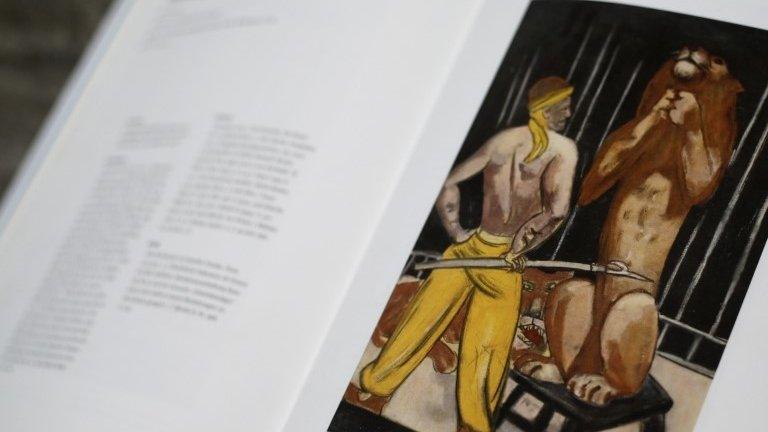Gurlitt's Matisse is confirmed to be looted 'Nazi art'
- Published

Matisse's Femme Assise was found in a collection estimated to be worth up to a billion euros
A Matisse painting found among a huge trove of art amassed by the son of a Nazi art dealer is the first painting to be confirmed as looted.
The task force investigating the hoard says the piece belongs to the family of a Paris art dealer.
Femme Assise [Seated Woman] was in the Munich apartment of Cornelius Gurlitt, who died last month aged 81.
It is one of more than 1,000 Gurlitt pieces under investigation.
"Even though it could not be documented with absolute certainty how the work came into Hildebrand Gurlitt's possession, the task force has concluded that the work is Nazi loot and was taken from its rightful owner Paul Rosenberg," Ingeborg Bergreen-Merkel, the head of the task force, said in a statement.
The priceless collection was confiscated in 2012 by Bavarian authorities from Gurlitt's apartment.
Gurlitt's father, Hildebrand Gurlitt, was ordered by Adolf Hitler to deal in works that had been seized from Jewish families, or which the Nazis considered "degenerate" and had been removed from German museums in the 1930s and 1940s.
The Matisse was taken from a Jewish art dealer, Paul Rosenberg, in Paris in 1941.

Cornelius Gurlitt had agreed to help authorities discover which works had been stolen
The family had been searching for it until it turned up in Gurlitt's flat in Munich. The task force has now said the Matisse should be returned to the Rosenbergs.
Intense legal and investigative work remains to be done on the rest of the estimated 1,280 paintings,
The German government had tasked the experts with settling a dispute over ownership of the Matisse between the Rosenberg heirs and a second party, whose identity has not been revealed.

A beach scene by German impressionist Max Liebermann was one of the important discoveries
The experts consulted archives in Germany, France and the United States,
Chris Marinello, the director of Art Recovery International, who is representing the Rosenberg family, said the decision came as no surprise "given the strength of the documentation".
"With this acknowledgement, we look forward to a swift and efficient restitution of this looted work to the family after a 73-year wait."
Before his death last month, Gurlitt made the Bern Art Museum in Switzerland the "sole heir" of the collection. The museum has yet to accept the role of legal heir of the estate.
However, Gurlitt had also agreed to co-operate with the German authorities on establishing the paintings' provenance, and returning them if they were shown to be stolen.
Gurlitt, who had no close relatives, wrote the will within his last few weeks, shortly before undergoing heart surgery.
His collection only came to light after a routine check found he was carrying wads of cash on a train from Switzerland, triggering a tax inquiry.
Investigators found the works in his flat in February 2012 but only revealed the discovery in late 2013. A further 60 paintings were found in his house near Salzburg, Austria, earlier this year.
Among them were works by Pierre-Auguste Renoir, Pablo Picasso, Marc Chagall, Emil Nolde and Max Liebermann.
Under German law, Gurlitt was not compelled to return any paintings because the incidents happened more than 30 years ago.
- Published7 May 2014

- Published7 April 2014

- Published26 March 2014

- Published5 November 2013
- Published5 November 2013
